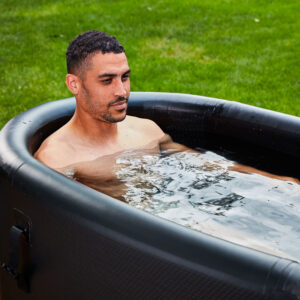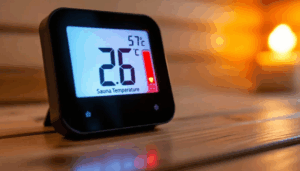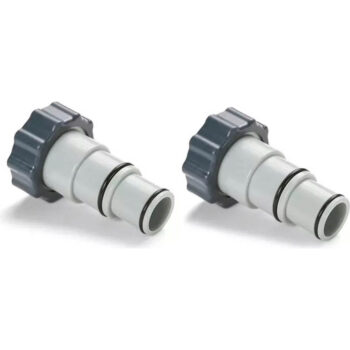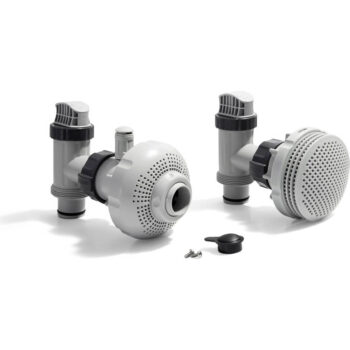Nose Breathing vs Mouth Breathing is a long-running debate. When it comes to breathing, the subject has grown increasingly significant as more information about the effects of airway and sleep on the body has been available. For example, the way we breathe can impact the position of our teeth, the way we speak, the quality of our sleep, and, consequently, our energy and function throughout the day, and the development and growth of children’s faces.
Natural breathing for the majority of humans is to breathe through their noses practically all of the time. Humans developed this method of eating as a survival skill because it allows us to keep our breath while we eat with our mouths and avoid choking.
Some people, however, develop mouth breathing later in life or are born as mouth breathers as a result of the structural makeup of their bodies. Both of these situations can cause you to unintentionally breathe via your mouth, resulting in various health problems.
You likely breathe without even realizing it. Your body performs it on its own, without requiring much if any, conscious effort on your part to do.
However, it is critical to pay close attention to your breathing. When it comes to nose breathing vs mouth breathing. In general, breathing through your nose rather than your mouth is preferable. This is because nasal breathing is more natural and allows your body to use better the air you breathe.
Despite this, it is estimated that between 30-50 per cent of individuals breathe via their mouths, particularly during the morning hours. This has the potential to result in health problems such as foul breath and a dry mouth. Chronic mouth breathing can negatively impact your health and wellbeing.
Mouth Breathing Health Problems
Mouth breathing is generally a sign of mouth breathing disorder, which has been linked to many health problems. It’s also related to the development of facial structural weaknesses and tooth misalignment in adults and children. In addition, it can result in dry mouth issues such as bad breath, dental problems such as cavities and gum disease, sleep-disordered breathing, chronic fatigue syndrome (CFS), cardiovascular disease, and underdevelopment of the upper airway.
The main consequence of mouth breathing is that your body can’t make use of the fresh air you breathe in. When this happens adequate amounts of oxygen cannot be circulated through your lungs and other parts of your body causing physiological stress.
It normally starts when the mouth is used to provide a more regular breathing pattern, rather than a nasal one. The medical term for this disorder is oral respiration. When you’re in a healthy state, your tongue stays in its usual position with most of it touching the roof of your mouth and the rest resting on the floor behind your lower front teeth.
However, mouth breathing can cause it to migrate towards the front of your mouth. This will create an airway obstruction through which air cannot flow properly from one nostril into the other. As a result, you’ll have to breathe mainly through your mouth instead of both ways via nose and mouth that’s normal for humans.
Mouth-breathing children often experience difficulties in learning because they breathe more through their mouths than their noses. This type of breathing can also contribute to the development of crooked teeth and malocclusions, such as an overbite or underbite.
Interestingly, one study found that children with hyperactivity were more likely to be mouth breathers than those who don’t have this issue. Others claim nasal congestion can trigger ADHD in some kids.
Natural Breathing is Best for Everyone
Breathing is essential for life itself, but most people take it for granted, especially when it comes to nose versus mouth breathing. It’s important not only during sleep hours, when you’re in your resting state, but in general on a daily basis in order to regulate blood levels and maintain proper physical health.
Let us take a look at mouth breathing vs nose breathing in a little more detail.

Nose breathing
Your nose is specifically constructed to assist you in breathing safely, efficiently, and correctly. It can accomplish this because of its ability to:
Remove any extraneous particles by filtering them out. Nasal hairs act as a filter, removing dust, allergens, and pollen from the air and preventing them from entering the lungs.
Humidify the air that is inhaled. The air that you breathe in gets warmed and moisturized by your nose. This raises the air temperature you breathe to that of your body, making it easier for your lungs to use.
Produce nitric oxide: When you breathe through your nose, your nose releases nitric oxide (NO). NO is a vasodilator, which implies that it aids in the expansion of blood vessels. This can assist in the improvement of oxygen circulation throughout your body.
Nose breathing also comes with many physiological and psychological benefits such as:
Stress reduction. With nose breathing, you can more efficiently control the amount of oxygen entering your body. This helps to regulate blood pressure levels and improve heart health. Improved memory function. Nasal breathing releases NO in the brain which increases serotonin production, improving memory centres in the brain. It also inhibits cortisol release, reducing stress hormones that inhibit learning and proper long term memory development. Clears your head. Nose breathing relieves anxiety by increasing positive neurotransmitters like serotonin or dopamine which make you feel happy or relaxed. Helps you focus on what’s important. When you’re concentrating on something, it allows you to do it without distraction from other elements around you because there is overall reduced activity in your mind. You can focus on one thing at a time, which is perfect for studying or completing other mentally-challenging tasks. It improves overall mood. Studies have shown that negative emotions are related to unhealthy breathing patterns. So if you’re stressed out, angry, anxious, afraid, sad, etc., nose breathing will help regulate the levels of cortisol and epinephrine in your brain to improve mental health.
Mouth breathing
Your mouth assists you in eating, drinking, and speaking. Of course, it is possible to breathe through your mouth as well, but it lacks many of the unique attributes that your nose possesses for this function.
The use of mouth breathing is important in several situations. For example, if you have nasal congestion, narrow nostrils, or a deviated septum, you may find that you must breathe through your mouth to stay comfortable.
The disadvantage of mouth breathing is that it causes your mouth to lose moisture, resulting in a dry mouth. Other effects of mouth breathing include the increased chance of inhaling unfiltered air, having allergic reactions to allergens, having asthma, having bad breath, having tooth decay, having gum inflammation (gingivitis), having snoring, having sleep apnea, and having teeth or jaw abnormalities.
What can cause mouth breathing?
- Obstruction of the nasal airways, either a partial or complete obstruction of the nasal airways, is a common cause of mouth breathing. There are a variety of frequent causes of clogged noses, including:
- Adenoids, which are patches of tissue located in the back of your throat and above your tonsils
- Nasal polyps, which are tissue growths in the lining of your nose
- Tumours
- Genetic defects that have an impact on the nose
- Other medical disorders, such as sleep apnea, can cause you to breathe through your mouth while you sleep. When you have a sleep apnea episode, you stop breathing for a period of time. You will snore loudly because your brain will panic, and your body will struggle for air due to the stress. These occurrences can lead to a habit of mouth breathing to ensure that your body receives enough oxygen.
The differences between nose and mouth breathing
Nose breathing doesn’t only provide us with numerous health benefits; it also has some physiological differences when compared to mouth breathing:
Air enters through nostrils which filter out dust particles and germs before they reach the lungs. Air passes over the nasal membranes (aka turbinates) which are lined with mucous. This mucous helps clean the air that is entering your lungs by trapping dust, pollen, and bacteria particles for easy disposal. Air enters the nasal cavity. The nasal cavity provides a large surface area to trap more particles before they enter the lungs through cilia movement within the nose’s lining.
Mouth breathing, on the other hand, carries some disadvantages:
Breathing through your mouth allows more particulate matter into your respiratory system because there are no hairs filtering out these elements as you inhale. Breathing through your mouth increases exposure of your teeth to different chemicals that can erode tooth enamel or cause tooth decay over time. When you breathe through your mouth, you promote dryness in your mouth, which can cause the following conditions: dry throat, cracked lips, swollen red tongue, bad breath (halitosis), and gingivitis. Bad breath is also likely due to the higher levels of bacteria in your mouth when you breathe through your mouth; bacteria breaks down food particles that enter your mouth with each inhalation.
Mouth breathing may be a result of allergies or nasal obstruction. It can also be a result of oral habits such as using a pacifier at night or putting a blanket into the crib with an infant that covers his or her face.
Another possible reason for mouth breathing is habit – if you have been told since you were young always to keep your mouth closed while sleeping, it can become an unconscious habit while you sleep.
What are some signs that your child is mouth breathing?
If your child has a lot of nasal congestion, he or she probably uses his or her mouth to breathe. Other signs that your child may be mouth breathing include: bad breath (halitosis), dry lips and skin, wrinkles around the nose and eyebrows, having trouble sleeping at night due to stuffy noses and snoring during the night, and tenderness in the cheeks and gums when touched.
Mouth breathing can also affect children’s teeth by causing dental issues such as: overbites, underbites, crossbites, open bites, buck teeth (malocclusions), crooked (malpositions), protruding teeth, and gum disease. It can even lead to abnormal facial growth in terms of the shape and size of the mouth. A mouth breather is more prone to developing a face that is long and thin with sunken, narrow eyes because of the loss of facial bone support.
Mouth breathing has also been linked to conditions such as: allergies (including food allergies), asthma, otitis media (ear infections), tonsillitis, sinusitis, bronchitis, pneumonia, laryngomalacia (an abnormal condition in babies that causes the soft tissue of the airway to collapse during breathing), sleep apnea, snoring, hyperactivity (ADHD), poor school performance, glandular disorders including hypothyroidism and adrenal insufficiency.
How to correct mouth breathing if your child is mouth breathing
The best way to help your child breathe through his or her nose is by getting professional assistance from a dentist. By visiting the dentist for an initial exam, you will be able to see if there are any underlying medical conditions that are causing your child to breathe through his or her mouth. You can also receive some advice on how to start using nasal breathing again. The main issue with getting some help for this condition is determining if it’s actually a problem in the first place — many parents find it difficult spotting the signs of mouth-breathing and oral habits since their children often swallow instead of exhale when they sleep at night.
Remove distractions: Your child may have developed a habit of mouth breathing because of the presence of an object in his or her mouth, such as a pacifier. By removing this object at night and during nap time, you may be able to encourage nasal breathing.
Clean your child’s teeth: After meals is when bad breath (halitosis) is likely to occur. This is because bacteria breaks down food particles after leaving the stomach and entering the mouth with each inhalation. As soon as you detect bad breath in your child, clean his or her teeth right away before it can cause any further damage. You can also send him or her to school with toothpaste and floss for after-meal cleaning sessions during snack time.
Keep your child’s face moisture: Dry skin causes one’s face to feel tight and itchy, which often leads to scratching. This can lead to wrinkles on the face after extended periods of time. To keep the skin around your child’s nose moist, you should apply some petroleum jelly or a moisturizer at night before bedtime. You should also give your child an infant tub so he or she can wash his or her face during bath time.
Frequent nosebleeds are another sign that your child may have inherited mouth breathing from their parents. The lack of moisture in one’s nasal passages causes dryness, which leads to nosebleeds due to inflamed blood vessels within the nasal cavity. Keeping your child’s airways moist by encouraging him or her to breath the nose will reduce the likelihood of nosebleeds.
Many children who mouth breathe usually snore, which is a sign that their airways are blocked. When the nasal passages become blocked, it’s impossible for air to pass through them easily, which leads to incomplete breathing and snoring. By encouraging your child to breath through his or her nose at night and preventing him or her from using a pacifier, you can help treat this condition before serious problems arise.
The only sure way of determining whether your child breathes normally is by visiting your dentist at least once every six months for an oral exam. This visit helps confirm if the saliva on your child’s teeth indicates that he or she breathes through his or her mouth often during sleep — it usually takes an expert to be able to determine what causes mouth breathing, so you should refrain from diagnosing your child yourself.
Why should you aim to breathe through your nose instead?
Experts believe that breathing through your nose has numerous advantages over breathing through your mouth. The way our noses process air is different from the way our mouths process it. It is our bodies’ method of keeping us safe and healthy that these variances exist. When you take a breath through your nose, it does the following:
Controls your lungs prefer the temperature Air that is neither too cold nor too hot. Except for obstructions such as a deviated septum or chronic rhinitis, the air that enters your lungs is heated or cooled through the nasal passages. This will assist in bringing the air temperature to a comfortable level for your body. This is not accomplished through mouth breathing.
Breathing through the nose removes pollutants from the environment. When you breathe, the cilia in your nose, which are microscopic, hair-like structures, filter out poisons and other foreign matter. They assist in directing them to your throat rather than your lungs. Using your mouth to breathe directs all of the air you take into your lungs.
Humidifies. Your nasal passages help to keep the air you breathe moist. This is something your mouth does not normally do, which is why some mouth breathers wake up with a dry mouth and painful throat when they first wake up. In addition, your nose can detect potentially dangerous compounds in the air or your diet. However, it is more difficult for your mouth to detect these pollutants.
Most people who mouth breathe wake up with dry mouth and sore throat because the surface of their mouths and throats never get moisturized during sleep. Some people find that they need to drink a glass of water before going back to sleep because the air they inhale takes all the water out of their mouths and throats. But drinking water isn’t good for you either; it makes too much mucus which causes distractions when trying to fall asleep again. If you are mouth breathing, you are probably swallowing mucus every time you drink water.
Potential effects of mouth breathing
1. Pain in the Jaw Joints (TMJ) (if mouth breathers also clench or grind their teeth at night)
2. Muscles Around Mouth Tense and Cramp at Night Causing Waking up with a Dry Throat
3. Ear Infections – From the Sinuses Being the Drainage Channel for Mucus That Should Be Going Into Nose But Isn’t Because Breathing Through Your Mouth All Night Causes The Mucus to Build Up Behind the Palate.
4. Waking Up With a Stuffy Nose or Pressure In Your Ears Due To Lack of Proper Airflow During Sleep Through The Nasal Passages
5. Snoring
6. Dry Eyes (See Joan’s Link Above)
7. Blepharitis – Inflammation of Eyelids Caused By the Mucus Buildup Behind the Palate which Causes Stinging and Burning Eye Pain. Some People with Blepharitis can’t see well enough to drive safely, so it might be a good idea to wear glasses 24 hours a day if this is an issue for you.
8. Dry Mouth and Throat Due to Lack of Moisture in the Air One Breathes at Night – More Problems With Swallowing Mucus That Should Be Going Into Nose But Isn’t Because Breathing Through Your Mouth All Night Causes The Mucus to Build Up Behind the Palate causing poor oral health.
9. Sleep Apnoea – Can Be Caused by Mouth Breathing, but it is also caused by obesity, large tonsils and abnormal soft tissues at back of throat (pharynx). People Who Come From Loud Noisy Families or Who Have Been Exposed to Loud Noise All Day May Be Prone to Having Problems with Sleep Apnea.
10. Asthma – Can Be Caused By Mouthbreathing But Also Due to Pollen Counts Being High, or Having an Allergy to Pet Dander Or Dust Mites in Bed Covers – People With Dry Inflammated Throats Lose Their Ability To Swallow Well And Then Swallowing Anything Causes Them to Retch and Vomit.
11. Hormone Imbalances – Severely Affected by Not Getting Adequate Oxygen During Sleep; Onset of Menopause Symptoms, PMS and Menstrual Cramps Can Be Helped By the Proper Amount of Oxygen During Sleep.
12. Heart Disease – Inability to Swallow Well Affects Saliva Production Which Can Cause Problems With High Cholesterol and Heart Disease. People Who Quit Smoking Have More Difficulty With Their Gums Bleeding When Brushing Their Teeth.
13. Dry Skin and Stretch Marks May Be Caused Or Exacerbated by Mouth Breathing During Sleep.
14. Decreased Athletic Performance – Increases Recovery Time from Weight Lifting, Long-Distance Running or Other Types of Exercise Which Requires a Lot of Oxygen to Burn Fat for Energy Rather Than Just Burning Glycogen.
15. More Likely to Get Sore Muscles After Exercise Due to Lactic Acid Buildup – Mouth Breathing Causes Oxygen in Blood to Drop Which Increases Carbon Dioxide Levels in the Blood, Dropping pH Level and Increasing the Difficulty of Getting Oxygen Into Cells for Energy Burning or Muscle Building.
16. Noisy Breathing at Night – People Who Mouth Breath are Prone to Having Sleep Apnea or Snoring.
17. Reduced Intimacy During Sex Due to Dryness, Stiffness and Lack of Desire Caused by the Effects of Poor Sleep on Circulation.
18. Chronic Fatigue – Can Be Caused by Mouth Breathing and the Effects of Poor Sleep on Circulation.
19. Dental Problems. Bad Teeth Caused by Mouth Breathing Have Been Found to Have More Than Twice as Much Porosity as Good Teeth. People Who Use Their Tongue or Chew on Pencils or Sticks of Gum at Night May Be Prone to Cavities on Those Parts of their Mouth.
Conclusion
As you can see, nose breathing is ideal. Mouth breathing bypasses our natural respiratory system, can lead to many negative health impacts. Nose breathers are able to avoid many of the consequences of breathing through the mouth and instead enjoy the health benefits that come with beating able to breathe properly. Practising great breathwork is a way to ensure that you are breathing through your nose consistently and correctly, giving your body all of the oxygen it needs to rejuvenate, heal and do everything that it needs to do. See the article on Breathwork and click here to book a guided breathwork session with Urban Ice Man.











